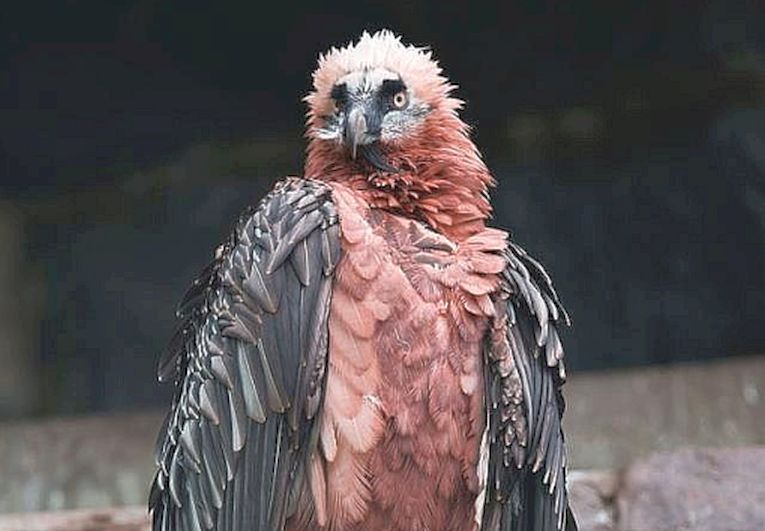Rewilding and reintroduction dominate conservation of some species. The paper here takes into account this good work but has a case for captive breeding instead of reintroduction in some cases. The magnificent but cowardly lammergeier has been deified almost by its ability to talent-spot
great leaders. Now, simply known as the bearded vulture, it sits on mountains and drops prey onto stone, but its Eurasian distribution is at least Near-Threatened.
Unique among raptors, Gypaetus barbatus is a vulture but unrelated to most of the other species. From the Himalaya to the Pyrenees, it fascinates with a huge wingspan and that odd predatory behaviour. Antoni Margalida of the Universities of Lleida and Bern, along with 5 colleagues from Spain and Switzerland is more concerned with Supplementary feeding and young extraction from the wild are not a sensible alternative to captive breeding for reintroducing bearded vultures
, their paper in the Journal of Applied Ecology.
Regular assessment is their plea and although captive breeding programmes are more expensive, current practice seems flawed. Supplementary feeding does not seem to have the expected effect on productivity within some suboptimal territories. When chicks are donated,
the loss of those individuals could be more strategic to the local population than has been assumed.
While the Gypaetus was once extinct in the Western Palearctic, the Alps have benefitted from a successful captive breeding programme. In Andalusia (Spain) and Cantabria (Italy), wild chicks have been more recently used to promote another reintroduction. These Spanish chicks were sometimes fed in a supplementary feeding programme, but the debate rests on how successful the various strategies are.
Costs enter into the argument, because human involvement is expensive. The importance of scientific and statistical investigation however lies in absolutely transparent calculation and operation. The authors in this case try and improve on some woolly conservationist thinking that in the long term would be negative for the species. Supplementary feeding, which has long been practised in India for vultures generally, does not necessarily improve breeding performance in a population, although it obviously keeps young alive. Science must use the tools available to assess accurately, otherwise the faith people have in results could be lost. Argument such as that of the climate deniers
was proved to be biased towards their beliefs and profits, rather than real situations. In the same way, conservation could easily lose support if we stopped financing projects because of inaccurate forecasts.
Perhaps the problem again is with bias, despite the positive interest in a species survival. The stats will always imply the truth even though they are so often themselves subject to old-fashioned spin.










